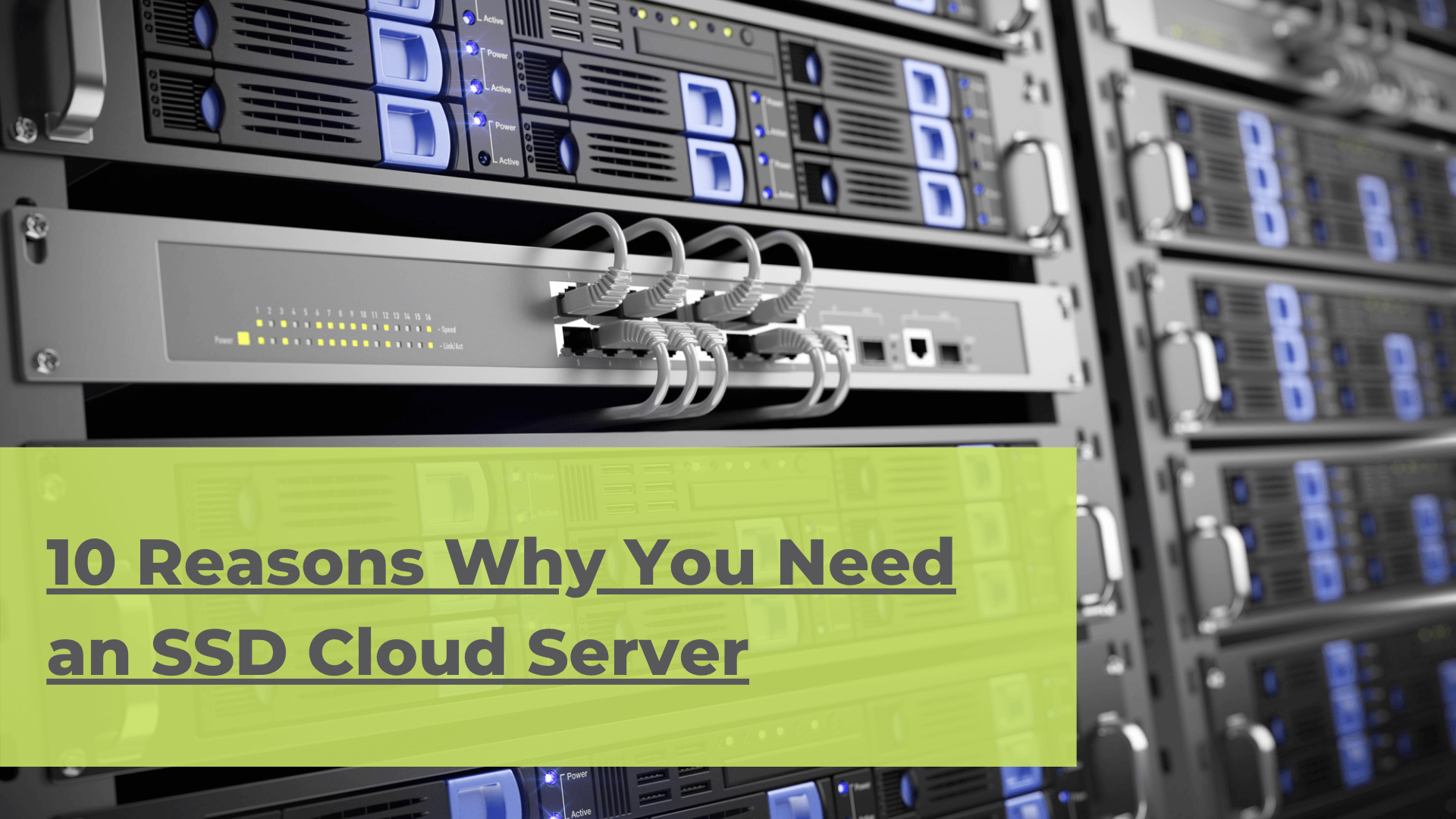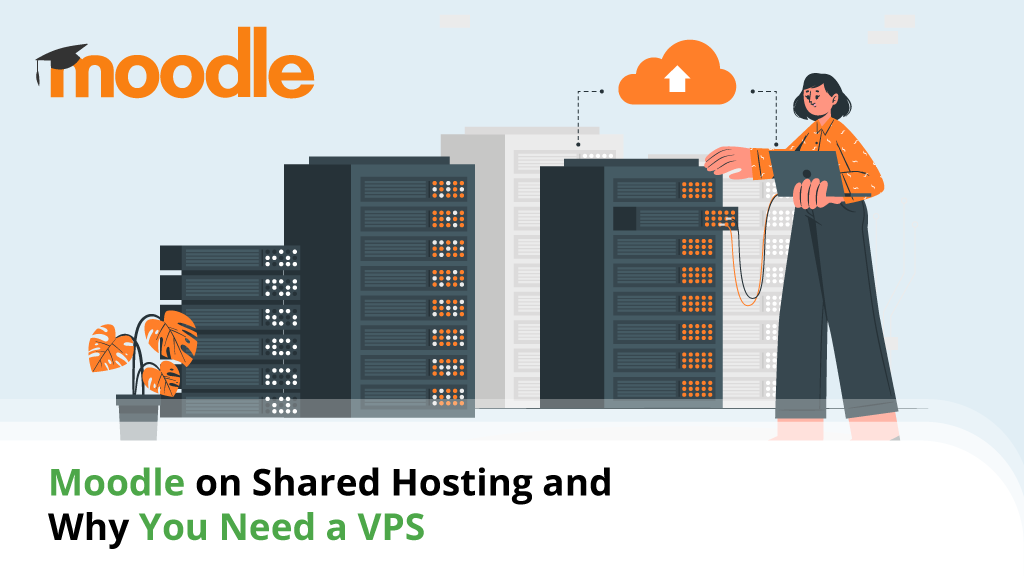 SSD cloud servers are gaining more and more popularity. In the following article, we will sum up the advantages of this type of hosting and outline what clients would best benefit from the service.
SSD cloud servers are gaining more and more popularity. In the following article, we will sum up the advantages of this type of hosting and outline what clients would best benefit from the service.
But before we dive deeper into the characteristics of SSD cloud solutions, we should quickly explain the role of web hosting for our internet presence.
The following review includes essential information, such as:
What is Web Hosting?
This is an essential service when you want to get online. Whether you already have an established business or you’re on the verge of creating one, you would need a reliable host for your website. The provider rents you a certain amount of server space and system resources, ensuring your web project is always online. Depending on the chosen service, you can also get professional support for any technical difficulties you might have.
But our focus here is SSD cloud hosting.
What is SSD?
SSD is a new kind of storage device, one of the greatest innovations in this area for the last decades. The abbreviation stands for Solid State Drive and depicts a fully-electronic device with no moving parts. This is a key advantage compared to the traditional hard disk drives (HDD) as it guarantees better performance and a longer lifespan.
But that’s just scratching the surface.
Here are the top 10 reasons why choosing an SSD cloud server might be the best idea for your business.
Why Choose SSD Cloud Hosting?
Speed
Speed is one of the make-or-break factors when it comes to hosting your own website. Since there are no moving parts in SSD, the writing and reading rates of the drivers are much higher because the data operations are entirely electronic.
Input/Output Operations Per Second (or simply IOPS) is a metric that describes the speed at which a device can read or write data. IOPS varies between 80-180 with traditional HDDs, but SSDs easily see the IOPS jump up to 75,000.
Maximizing the load time of your pages will not only attract more visitors but impress search engines as well. Google takes in mind over 200 factors when ranking websites, and speed is one of the most crucial ones.
Performance
SSDs don’t just increase your page loading speeds — your file access would be faster as well. Fragmentation is a key aspect in traditional hard drives, and one of the factors that often plays a part in slowing down your website.
That’s no issue for a cloud SSD.
For some pages, like large e-commerce websites, this is essential. The slower the website – the fewer sales completed, as the customers can get bored and give up if they have to wait for too long. If your page takes more than 3-5 seconds to load, the average visitor will leave, never to return again. Even if you are not selling anything, you want to leave a good impression.
By going for SSD cloud hosting, you are giving your business a competitive advantage in the growing competition in the online world.
Data Safety
The lack of moving parts with solid state drives eliminates the risk of wearing out, which often happens with the traditional HDDs. It is highly unlikely you experience any vibration damage with an SSD, and the operating temperatures allow for smooth running without the need for additional cooling devices.
Forget about unexpected data loss because of mobility – transporting the storage devices is as safe as possible. Overall, SSD cloud hosting is one of the most secure hosting solutions on the market right now.
Eco-friendly
The SSD technology uses up to 80% less energy than the old drives and generates less heat. This may not seem like a big deal if we’re talking about a single server, but there are entire data centers with hundreds of machines utilizing this type of web hosting, which can make a significant difference.
Tech is actually the industry that most contributes to the global pollution, so any efforts to reduce the carbon footprint are more than welcome.
Durability
Any mechanical device is bound to experience failure at some point. HDD technology has improved over the years – drives are becoming smaller while storage capacities are expanding. Nevertheless, SSD devices are still a much more reliable choice because they use microchips to store data.
There is a metric called Mean Time Between Failure (MTBF), which has proven that solid state drives have a significantly longer lifespan than HDDs. This also means that repairing costs are reduced to a minimum.
A quick note here — up until this point, we were focused on the advantages of SSD technology in general. In the next few lines, we will take a closer look at the hosting side of it and how solid state drives can improve our online experience.
Accessibility
Utilizing SSD cloud hosting means your website will employ an entire network of servers instead of a single machine. So, even if a server crashes or something goes wrong, your website will not experience any downtime because one of the cached copies will simply take over.
In other words, you get maximum availability at all times, which is something unique to SSD cloud solutions.
Scalability
One of the best features of this type of hosting is its scalability. This means you can increase certain system resources as your website grows and accumulates more traffic. The best thing is it works both ways – if there is a big drop in the number of visitors on your page, you will be able to remove a CPU core or some RAM.
A perfect option for companies that run seasonal promotions and marketing campaigns. If you’re selling Christmas decorations, for example, it is a no-brainer that the winter months will be most crucial and the most traffic is expected there. You can prepare in advance and avoid the risks of downtimes due to a lack of server resources.
DDoS Protection
This type of hosting has the best defense mechanism when it comes to DDoS attacks.
Distributed denial-of-service (DDoS) does not breach your private information or files, instead, its goal is to overwhelm your server with requests, causing it to eventually crash. This could be pretty harmful if you’re running a business website because you can easily lose sales for every minute of website downtime.
So how do the SSD cloud servers tackle the problem?
Because of their network architecture, there is no single point-of-access to your website files, and even if a machine goes down — there are many others available to take the load.
Here is more of our take on cloud hosting security.
Affordability
Contrary to what you might expect, SSD cloud solutions are becoming increasingly affordable. The key here is cost-effectiveness — you are ultimately getting better speed, performance, and availability for slightly more than the average shared hosting account. Not to mention how much you’re saving compared to a full-blown dedicated server.
Scalability plays a big role for cloud clients, as the careful resource adjustment allows them to keep all costs within a reasonable monthly budget.
Support
When choosing SSD cloud hosting, your hosting provider takes care of the server management. Forget all worries about data backups, upgrades, maintenance, and virus protection. This will allow you to focus solely on your business and spare time and efforts dealing with technical issues and security enhancements.
Final Takes
SSD cloud hosting deserves all plaudits coming its way — it not only offers full availability at all times but comes with great speed, advanced DDoS protection, and extensive support. It’s a user-friendly option that allows you to simplify the process of getting more visitors and recognition from search engines.
Big brands are already utilizing the full power of SSD cloud servers, so this type of hosting deservedly inspires trust and adds value to your brand image.
So why not give it a try?
Check out Scala’s SSD cloud solutions and empower your business with some first-class web hosting.



